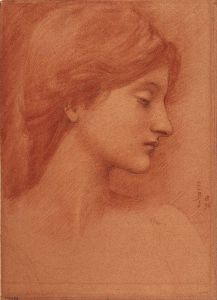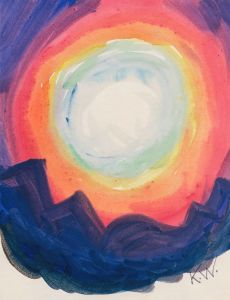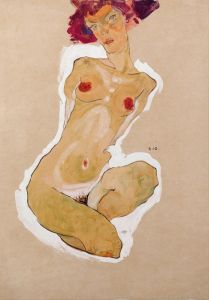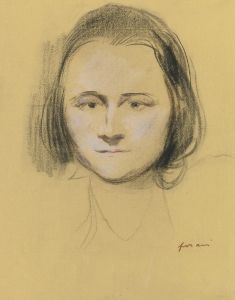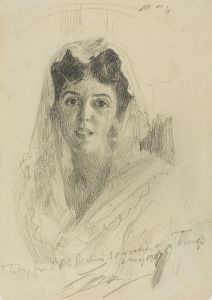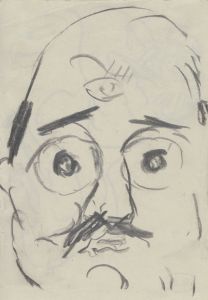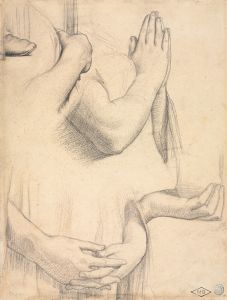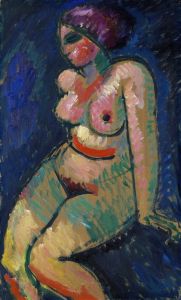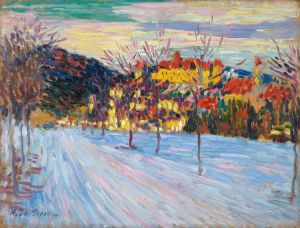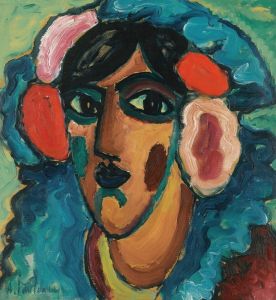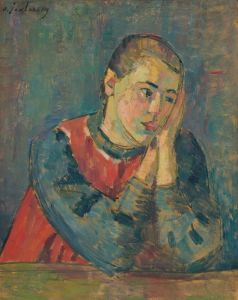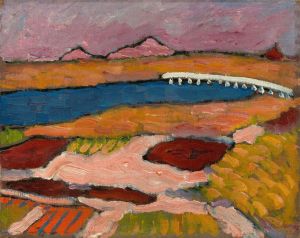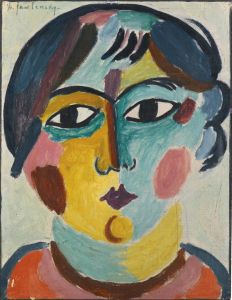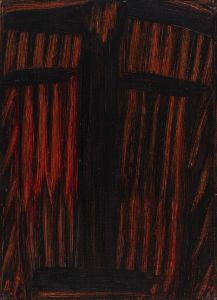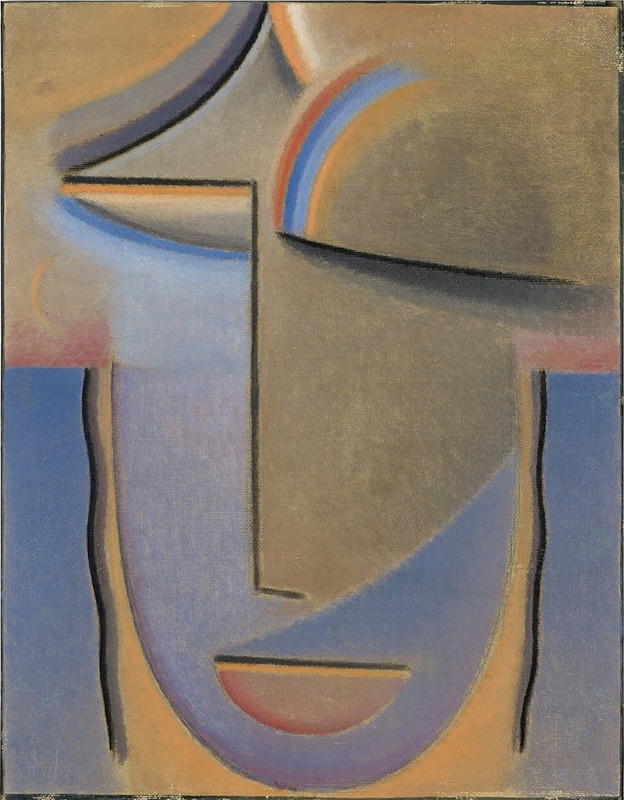
Abstract Head, Evening
A hand-painted replica of Alexej von Jawlensky’s masterpiece Abstract Head, Evening, meticulously crafted by professional artists to capture the true essence of the original. Each piece is created with museum-quality canvas and rare mineral pigments, carefully painted by experienced artists with delicate brushstrokes and rich, layered colors to perfectly recreate the texture of the original artwork. Unlike machine-printed reproductions, this hand-painted version brings the painting to life, infused with the artist’s emotions and skill in every stroke. Whether for personal collection or home decoration, it instantly elevates the artistic atmosphere of any space.
"Abstract Head, Evening" is a painting by the Russian-born artist Alexej von Jawlensky, who was a prominent figure in the early 20th-century expressionist movement. Jawlensky was born in 1864 in Torzhok, Russia, and later moved to Germany, where he became associated with the avant-garde art scene. He was a member of the Blue Rider (Der Blaue Reiter) group, which included other notable artists such as Wassily Kandinsky and Franz Marc. This group was instrumental in the development of expressionism, emphasizing the use of color and form to convey emotional and spiritual experiences.
The painting "Abstract Head, Evening" is part of Jawlensky's series of abstract heads, which he began developing in the 1910s and continued to explore throughout his career. These works are characterized by their simplified forms and bold use of color, reflecting Jawlensky's interest in spirituality and the inner essence of human experience. The series marks a significant departure from traditional portraiture, as Jawlensky sought to capture the universal rather than the individual.
In "Abstract Head, Evening," Jawlensky employs a vibrant palette, using colors to evoke the mood and atmosphere of evening time. The composition is dominated by geometric shapes and lines, which are arranged in a way that suggests a human face without depicting it in a realistic manner. This abstraction allows viewers to engage with the painting on an emotional level, inviting them to interpret the work based on their own perceptions and feelings.
Jawlensky's approach to painting was deeply influenced by his spiritual beliefs and his interest in Eastern philosophies. He was particularly drawn to the idea of achieving a meditative state through art, and his abstract heads can be seen as an attempt to transcend the material world and connect with a higher spiritual reality. This focus on spirituality is a recurring theme in Jawlensky's work and is evident in the contemplative nature of "Abstract Head, Evening."
Throughout his career, Jawlensky faced numerous challenges, including the upheaval of World War I and the subsequent political and economic instability in Europe. Despite these difficulties, he remained committed to his artistic vision, continuing to produce innovative and thought-provoking works until his death in 1941. Today, Jawlensky is recognized as a key figure in the development of modern art, and his abstract heads are celebrated for their pioneering approach to form and color.
"Abstract Head, Evening" exemplifies Jawlensky's contribution to the expressionist movement and his enduring influence on the trajectory of abstract art. The painting is housed in various collections around the world, where it continues to inspire and captivate audiences with its bold aesthetic and profound exploration of the human spirit.





